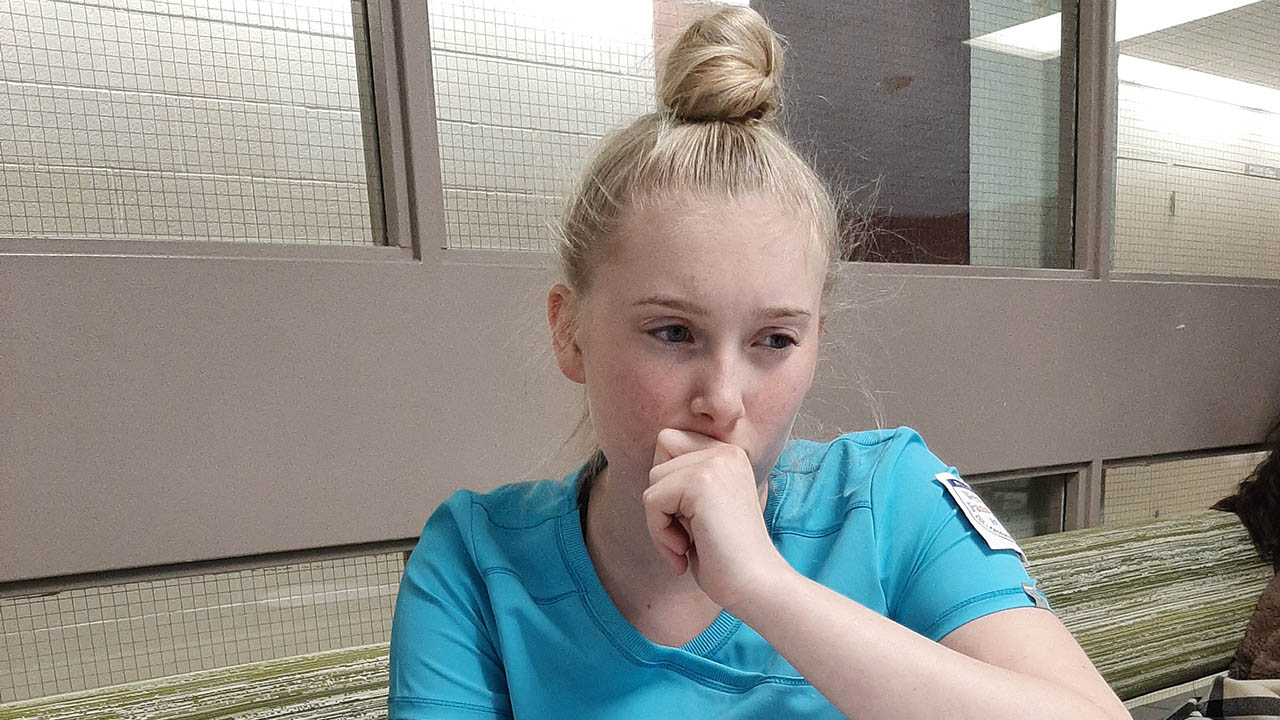Healthcare students disregard their own self-care
 CREDIT: SALMA HUSSEIN
CREDIT: SALMA HUSSEINWhen nurses are taking care of others, they often forget to take care of themselves.
When we decided we would choose to service the health of others, we neglected to take care of our own well-being.
Self-care has become a luxury instead of a priority for many nursing and health science students in particular. As a student nurse, I can attest to the rising disregard for me and my fellow peers’ mental wellbeing. We are in a rigorous routine of lectures, studying, tests, and no time to even glance in the mirror.
If I took the time to look at the mirror in between midterms, test and assignments, I would have noticed the dark bags under my eyes, or the loss of colour in my cheeks that usually would be brimmed with warmth. We walk the halls of the school with our minds constantly consumed with worry over how well we can do, and if we can pass. The thought of grabbing a healthy meal or sleeping early for a change seemed like a luxury.
After the October midterm showers, I spoke to my peers Natalie Piatek and Taylor Addison, first year nursing students from the Western-Fanshawe collaborative nursing program. Both explained the impact of the sudden workload.
“[I was] overwhelmed, and being fresh out of high school, I doubted if my studying techniques would work for university midterms,” Piatek said.
Addison agreed.
“Getting proper sleep was an issue, and I would feel guilty sleeping because I thought I could use the time to study instead,” she said.
The abrupt midterm season took the nursing students by surprise and they weren’t prepared, so selfcare did not seem like a necessity amongst the accumulating tasks.
There was a blatant flaw with our mentalities when we went into midterms, and with exams around the corner, the vitality to prepare ourselves mentally is crucial. The Western-Fanshawe nursing students were assigned a self-care contract, and the objective was to promise to take care of themselves when times of anxiety or stress appear. Each student needed to come up with three strategies that would help them relax and conquer the semester with reduced stress.
Herleen Mudher, another student from the Western-Fanshawe collaborative nursing program, shared her thoughts on the effectiveness of the self-care contract.
“The self-care contract helped me initiate contemplative practices that would help me forget about the stress,” Mudher said, adding that going home once a month to visit family and friends reminded her that she has a life outside of school. The nursing students took the opportunity with this contract to develop good contemplative habits and take care of their health. According to Elizabeth Ann Fiske’s (PhD, RN, CNE) scholarly journal on contemplative activities, contemplation is focusing on something intently and requires deep thought and reflection. Taking the time to ponder on your thoughts and reflect on your feelings helps clear the burden you carry as a student.
Consider the various types of contemplative practices and incorporate them into your daily routine. There are numerous activities such as meditation, writing, exercise, meeting with friends or even taking a walk for a bit of fresh air to gain perspective. Slowly but surely, you will be able to prioritize your selfcare and do well in your studies. These habits are not exclusively for nursing and health science students, the contemplative approach is open to anyone who wants to improve their well-being.
As we step into the healthcare workforce, we are licenced to take care of our patients. Their well-being is placed into the palms of our hands. An article from the University of Texas, “Why Self-care Is Vital for Your Nursing Career”, explains the implications on nurses and patients if self-care if neglected.
The article emphasizes the importance for nurses to recognize their personal needs and finding ways to adhere to them. In the long run, nurses are expected to work long hours during day or night, which comes with discomfort and possible development of health problems. If good self-care habits are not implemented earlier on as a student, you are more likely to burn out very early in your career, and even leave your job. Explore what makes you happy and find something that will help you alleviate your burdens.
Take the time to meditate, reflect, socialize, or simply do something you love. Any of these activities will help you release your anxieties and let you focus on the good parts of life. Take advantage of the services that Fanshawe offers for students, like the Wellness Centre: dedicated to your wellness! If you need to release bottled thoughts, consider counselling offered by Counselling and Accessibility services in F Building room 2010.
As much as we hate stress, it’s going to be a part of our lives, and even more so if we let it consume us. As nurses and healthcare workers, we are going to look over others and guide them towards healthy lifestyles. Does it not then make sense for us to set a good example? We can only give care if we have it ourselves. Strive to be compassionate to yourself before you seek to steer others to wellness.
Good luck for the upcoming exams and remember to practise loving yourselves!















